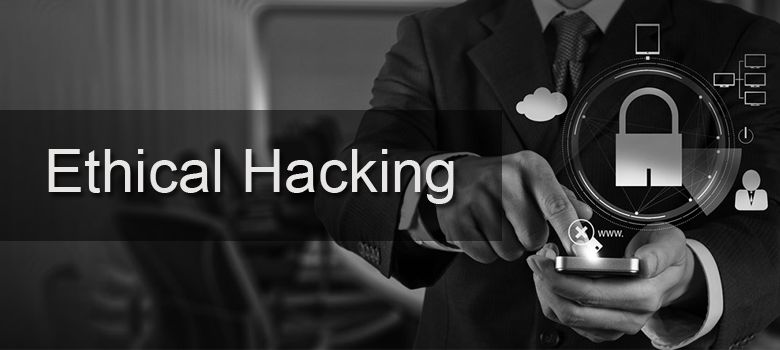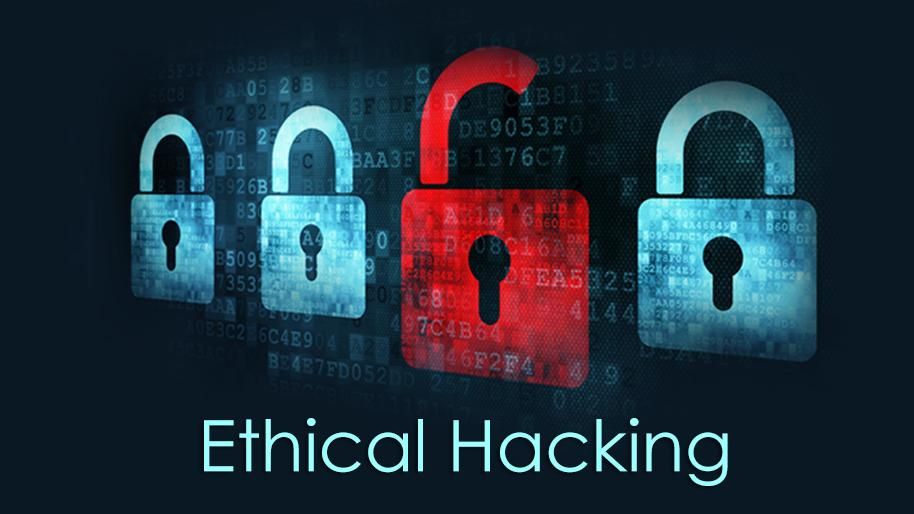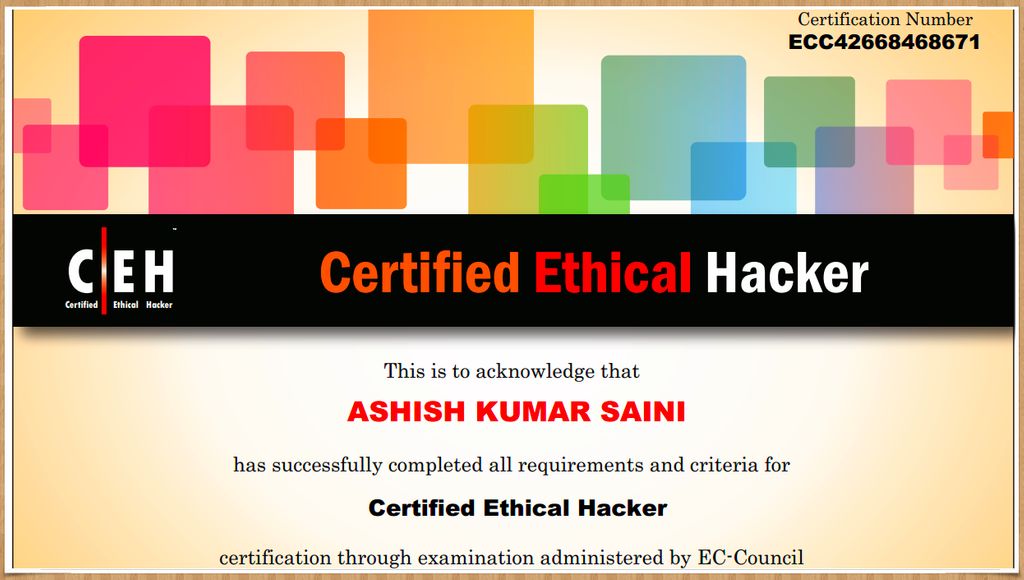Ethical Hacking
Feb 08, 2019 • 24 views
Hacking is the process of identifying and exploiting the weakness in a system or a network to gain unauthorized access to data and system resources.
It may also be outlined as an unauthorized intrusion into the knowledge systems/networks by an offender by compromising the safety. Example of Hacking: Exploiting the weakness of default countersign to realize access to the info holds on within the system.

Types of Ethical Hackers
White Hat Hackers
White Hat hackers are called moral Hackers.
They ne'er meant to hurt a system, rather they try to find out weaknesses in a computer or a network system as a part of penetration testing and vulnerability assessments.
Ethical hacking isn't black and it's one amongst the strict jobs accessible within the IT trade.
There square measure various firms that rent moral hackers for penetration testing and vulnerability assessments.

Black Hat Hackers
Black Hat hackers, also known as crackers, are those who hack in order to gain unauthorized access to a system and harm its operations or steal sensitive information.
Black Hat hacking is often black as a result of its unhealthy intent which has stealing company information, violating privacy, damaging the system, blocking network communication, etc.
Grey Hat Hackers

Grey hat hackers square measure a mix of each black hat and white hat hackers.
They act while not malicious intent except for their fun, they exploit a security weakness in a computer system or network without the owner’s permission or knowledge.
Their intent is to bring the weakness to the eye of the house homeowners and obtaining appreciation or a bit bounty from the owners.

ClickJacking Attacks.
Virus, Trojan
Trojan
Phishing
Eavesdropping (Passive Attacks)
Fake WAP
Waterhole attacks
Denial of Service (DoS\DDoS)
Keylogger
Onion Browser
Anonymity Tools
Certified Ethical Hacker Certification
A Certified moral Hacker may be a masterful skilled World Health Organization understands and is aware of a way to explore for weaknesses and vulnerabilities in target systems and uses identical data and tools as a malicious hacker, but in a lawful and legitimate manner to assess the security posture of a target system(s). The CEH written document certifies people within the specific network security discipline of moral Hacking from a vendor-neutral perspective.

Some Hacking Tools
Trojan
Virus
Phishing
Eavesdropping (Passive Attacks)
Fake WAP
Waterhole attacks
Denial of Service (DoS\DDoS)
Keylogger
Onion Browser
Anonymity Tools
Certified Ethical Hacker Certification

A Certified moral Hacker may be a consummate skilled UN agency understands and is aware of a way to search for weaknesses and vulnerabilities in target systems and uses constant data and tools as
a malicious hacker, but in a lawful and legitimate manner to assess the security posture of a target system(s). The CEH certification certifies people within the specific network security discipline of moral Hacking from a vendor-neutral perspective.
The purpose of the CEH credential is to:
Establish and govern minimum standards for credentialing skilled data security specialists in moral hacking measures.
Inform the general public that certified people meet or exceed the minimum standards.
Reinforce moral hacking as a novel and self-activating profession.
